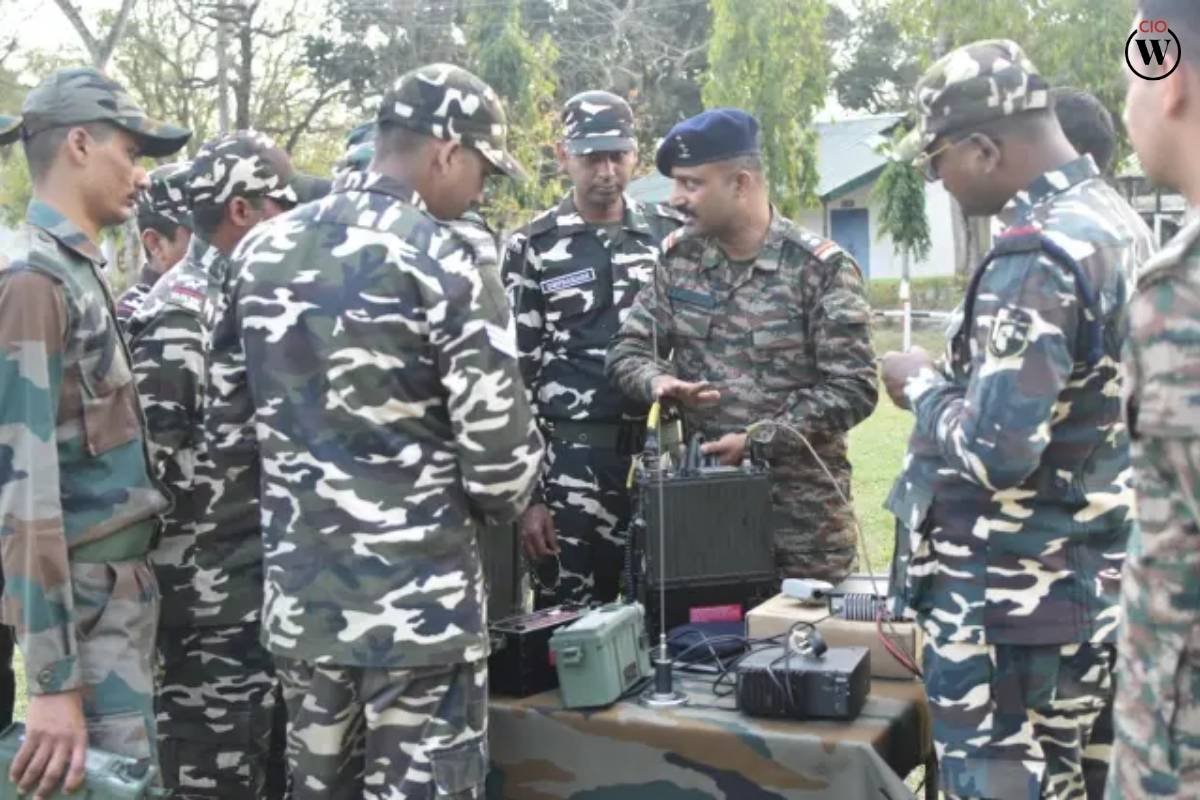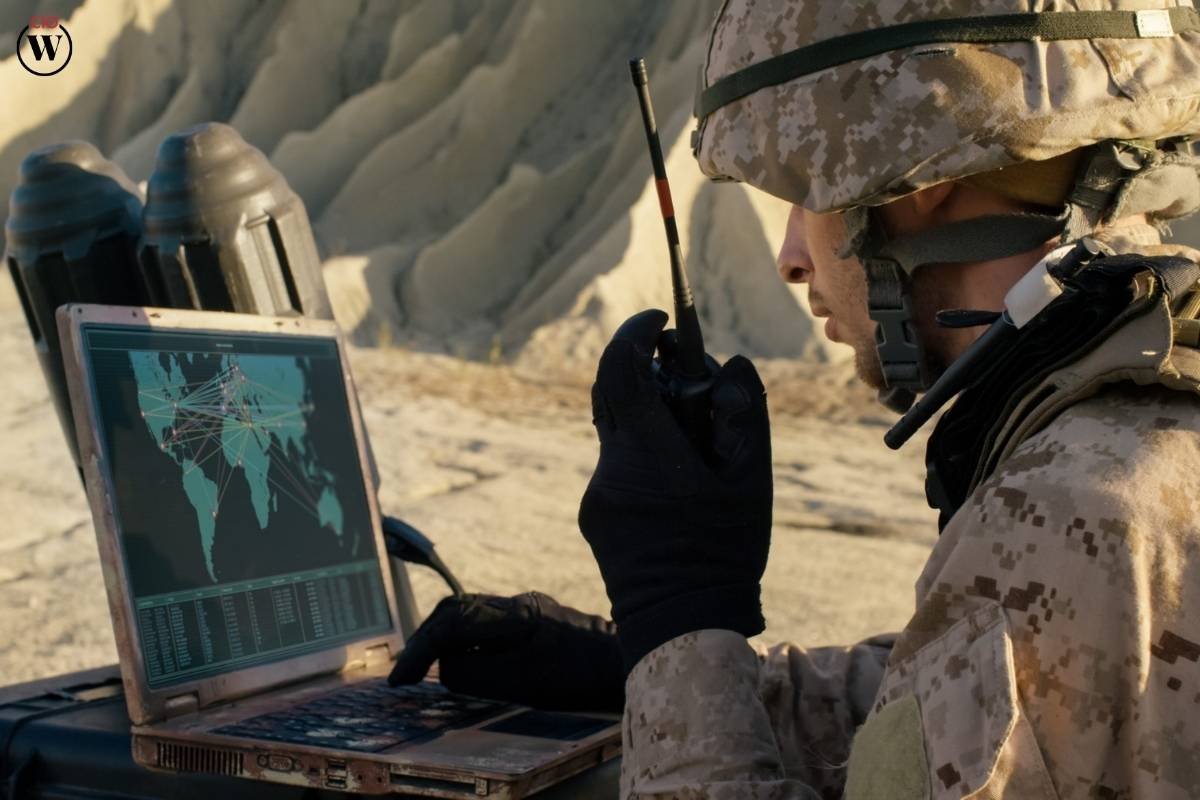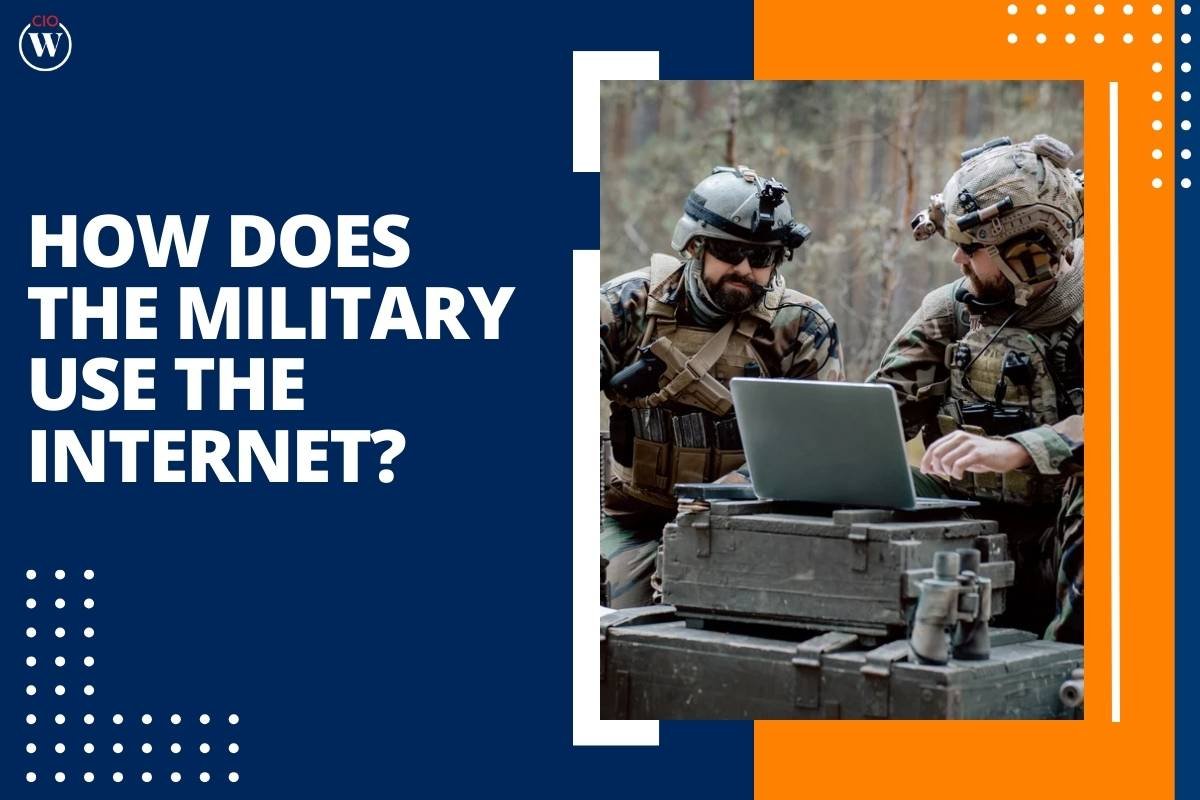Source – Army Technology
In today’s digital age, the internet serves as a powerful tool for various sectors, including the military. The utilization of the internet by armed forces has significantly evolved over the years, revolutionizing the way they operate, communicate, and gather intelligence. This article explores how does the military use the internet to enhance its operations and bolster security measures.
Introduction to Military Internet Usage
The military’s reliance on the Internet is multifaceted, encompassing communication, information dissemination, intelligence gathering, and operational coordination. Understanding how the military utilizes the internet provides valuable insights into its modern strategies and capabilities.
Communication and Collaboration

One of the primary ways of how does the military use the internet is for communication and collaboration among its personnel. Through secure networks and encrypted channels, soldiers stationed across different locations can exchange vital information in real-time, enabling swift decision-making and coordinated action. Whether it’s coordinating missions, sharing tactical updates, or conducting virtual training exercises, the internet serves as a lifeline for seamless communication within the military ranks.
Information Dissemination and Public Relations
The military also harnesses the internet as a platform for information dissemination and public relations. Official websites, social media channels, and online press releases are utilized to share updates on military operations, showcase humanitarian efforts, and engage with the public. By leveraging digital platforms, the military can shape its public image, disseminate accurate information, and counter misinformation or propaganda.
Intelligence Gathering and Analysis
In the realm of intelligence gathering, the internet plays a pivotal role in collecting, analyzing, and disseminating critical information. Military intelligence agencies monitor online communications, social media activities, and open-source data to gather insights into potential threats, monitor adversaries’ activities, and assess geopolitical developments. Advanced analytics and machine learning algorithms are employed to sift through vast amounts of data, enabling intelligence analysts to identify patterns, trends, and emerging threats more efficiently.
Cyber Warfare and Defense
With the rise of cyber threats and digital warfare, the military has bolstered its capabilities in cyber warfare and defense. The internet serves as both a battleground and a domain for defensive operations. Military cyber units are tasked with safeguarding critical infrastructure, defending against cyberattacks, and conducting offensive operations against adversaries’ networks. By constantly monitoring for cyber threats and vulnerabilities, the military can mitigate risks and ensure the integrity of its digital assets.
Logistics and Supply Chain Management
Efficient logistics and supply chain management are essential for military operations, and the internet plays a vital role in optimizing these processes. Online platforms and software solutions enable military planners to track and manage resources, coordinate transportation logistics, and streamline supply chain operations. Whether it’s deploying troops to a remote location or delivering essential supplies during humanitarian missions, the internet enhances the agility and effectiveness of military logistics.
Training and Simulation

The internet provides a virtual training ground for military personnel, allowing them to hone their skills and conduct realistic simulations without the need for physical resources. Through online training modules, immersive simulations, and virtual reality technologies, soldiers can simulate various scenarios, practice decision-making under pressure, and enhance their combat readiness. Additionally, online courses and educational resources enable continuous learning and skill development across various military disciplines.
Global Connectivity and Partnerships
The internet fosters global connectivity and partnerships among military organizations worldwide. Through secure communication channels and collaborative platforms, military alliances can coordinate joint exercises, share intelligence, and enhance interoperability. International cooperation in areas such as counterterrorism, peacekeeping, and disaster response is facilitated by digital communication networks, enabling swift and coordinated responses to global challenges.
Challenges and Considerations
While the Internet offers numerous benefits to the military, it also presents unique challenges and considerations. Cybersecurity threats, information overload, and reliance on digital infrastructure are among the key concerns faced by military organizations. Ensuring the security and resilience of military networks against cyberattacks and maintaining operational security in an era of pervasive digital surveillance are ongoing priorities for defense planners. Here are some of these challenges:
1. Cybersecurity Threats:
The increasing reliance on digital networks exposes the military to a wide range of cybersecurity threats, including hacking, malware, and cyber espionage. Protecting sensitive information and critical infrastructure from cyberattacks is a constant challenge, requiring robust defense mechanisms and proactive risk mitigation strategies.
2. Information Overload:
The vast amount of data available on the internet can overwhelm military personnel, making it challenging to sift through and prioritize information effectively. Managing information overload requires advanced analytics, artificial intelligence, and human judgment to filter out irrelevant data and focus on actionable intelligence.
3. Reliance on Digital Infrastructure:
The military’s dependence on digital infrastructure for communication, command and control, and logistics makes it vulnerable to disruptions caused by cyberattacks, technical failures, or electromagnetic interference. Ensuring the resilience and redundancy of digital systems is essential to maintaining operational continuity in adverse conditions.
4. Operational Security:
The interconnected nature of the internet raises concerns about operational security (OPSEC), as adversaries may exploit publicly available information to gather intelligence or disrupt military operations. Protecting sensitive data, enforcing strict operational security protocols, and educating personnel about online threats are essential to mitigate risks and safeguard mission effectiveness.
5. Technological Dependence:

While digital technologies offer numerous benefits, excessive reliance on technology can create vulnerabilities and dependencies that adversaries may exploit. Balancing technological innovation with traditional tactics and strategies is crucial to maintaining operational flexibility and resilience in dynamic environments.
6. Legal and Ethical Considerations:
The use of the internet for military purposes raises legal and ethical considerations related to privacy, surveillance, and the use of force in cyberspace. Adhering to international laws and norms governing armed conflict, respecting human rights, and upholding ethical standards in cyberspace are imperative to preserve legitimacy and avoid unintended consequences.
7. Training and Education:
Keeping pace with evolving technologies and cyber threats requires continuous training and education for military personnel. Ensuring that soldiers, commanders, and cybersecurity professionals possess the necessary skills and knowledge to navigate the digital landscape effectively is essential to maintaining operational readiness and resilience.
Conclusion
In conclusion, changes in the way the military operates, communicates, and defends national interests are reflected in how does the military use the internet. From enhancing communication and collaboration to gathering intelligence and conducting cyber warfare, the internet serves as a critical enabler of modern military capabilities. By leveraging digital technologies and adapting to evolving threats, the military remains at the forefront of innovation in the digital domain, ensuring the security and resilience of nations in an increasingly interconnected world.
In essence, the military’s utilization of the internet is not just about connectivity; it’s about leveraging digital tools and technologies to safeguard national security, protect personnel, and advance strategic objectives. As technology continues to evolve, so too will the military’s strategies and capabilities in harnessing the power of the internet for defense and security.
Similar topics:
1. Exploring The Top 15 Applications Of Internet Of Military Things
2. The 10 Hottest Trends In Internet Of Military Things
3. Navigating The Battlefield Of Leadership: Exploring Diverse Leadership Styles In The Military
4. Mastering Military Leadership Principles: A Guide To Effective Command









